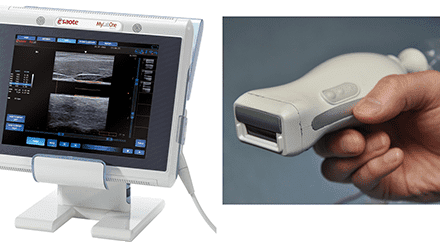By Keri Forsythe-Stephens
From a legislative perspective, the medical device sector has been quite busy as of late. Jumpstarting this eventful—and dare I say contentious?—period was Congressmen Ryan Costello and Scott Peters’ late-April introduction of H.R. 2118, aka: the “Medical Device Servicing Safety and Accountability Act”—a bill that has garnered mixed reviews from members of the HTM community.
While officials at the Medical Imaging & Technology Alliance (MITA), for instance, have lauded the legislation as improving patient safety, others have begged to differ.
Leading the charge against H.R. 2118 were the International Association of Medical Equipment Resellers and Servicers and the American College of Clinical Engineering (ACCE). ACCE officials were so concerned about the legislation, in fact, that they penned a collective letter to House Energy & Commerce Subcommittee on Health Chairman Michael Burgess in late May. The ACCE’s main grievance with H.R. 2118? The legislation “attempts to address an alleged patient safety problem for which no scientific evidence exists.”
Stephen Grimes, FACCE, FHIMSS, FAIMBE, ACCE’s lead on servicing standards, adds: “If we’re trying to improve patient safety and quality care, there is a lot I believe we could be doing, other than creating new regulations, that could have a real, demonstrable impact. I think the Medical Device Servicing Safety and Accountability Act represents a red herring and a distraction from what truly deserves our attention.”
At press-time, industry rumblings suggest that H.R. 2118 won’t pass in the House. But regardless of the outcome, the legislation has certainly made waves throughout the industry—waves that most likely won’t be forgotten for quite some time.
Also creating waves in the medical device sector: A recent Supreme Court ruling that said manufacturers lose their patent rights after they sell their product. The landmark decision came after printer giant Lexmark International tried to block the sale of refurbished models of its printer cartridges.
In a statement, Chief Justice John Roberts said sellers relinquish their patent rights even if the purchaser agrees not to resell the device—a ruling that stands whether or not the sale occurred in the U.S. or abroad. “Extending the patent rights beyond the first sale would clog the channels of commerce, with little benefit from the extra control that the patentees retain,” Roberts wrote.
Washington insiders call the Supreme Court ruling a huge loss for printer and pharmaceutical companies—although they’re not sure how it will affect the medical device industry. So what do you—the actual members of the medical device sector—think? Shoot me an email at [email protected] and share your thoughts.





Great read.
Digital X-Ray Sales & Service!
OEM quality at Non OEM Prices!
https://www.rapidxray.biz
Hello Kari, while it is true that the recent SC ruling (in Impression Products, Inc. v. Lexmark International, Inc.) holds that patentees lose their patent rights in a product after they sell the product (either directly or through a licensee). Keep in mind that this applies separately to each individual product sold and not relative to products that have not yet been sold. In other words, this does not mean that once a product is sold, the patent holder loses their patent rights in other similar products that have not yet been sold.
While patent holders lose their patent rights in a product once it’s sold, they can still retain control over use of the product through contract law. Unlike patent law, however, contract law is subject to privity requirements.